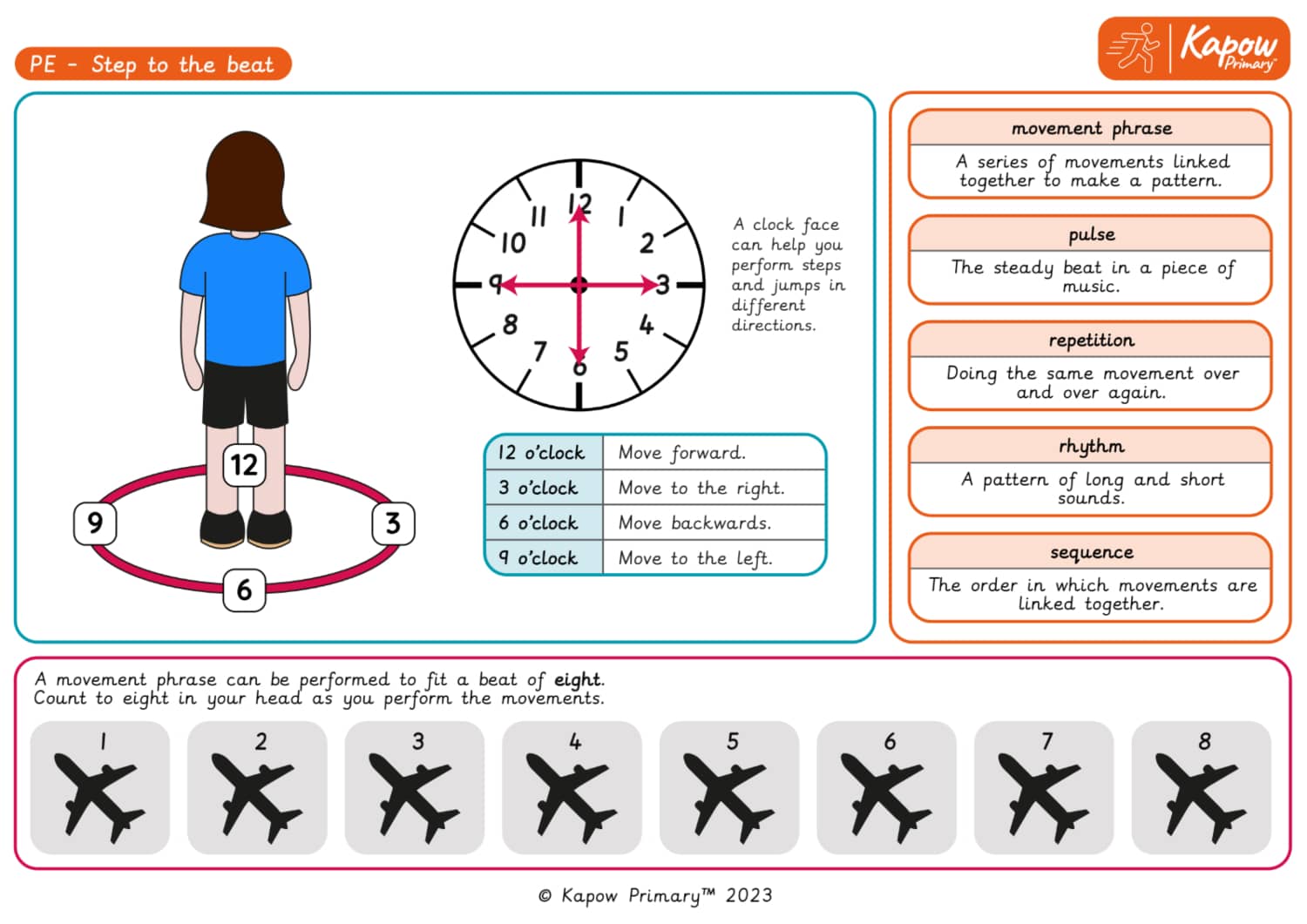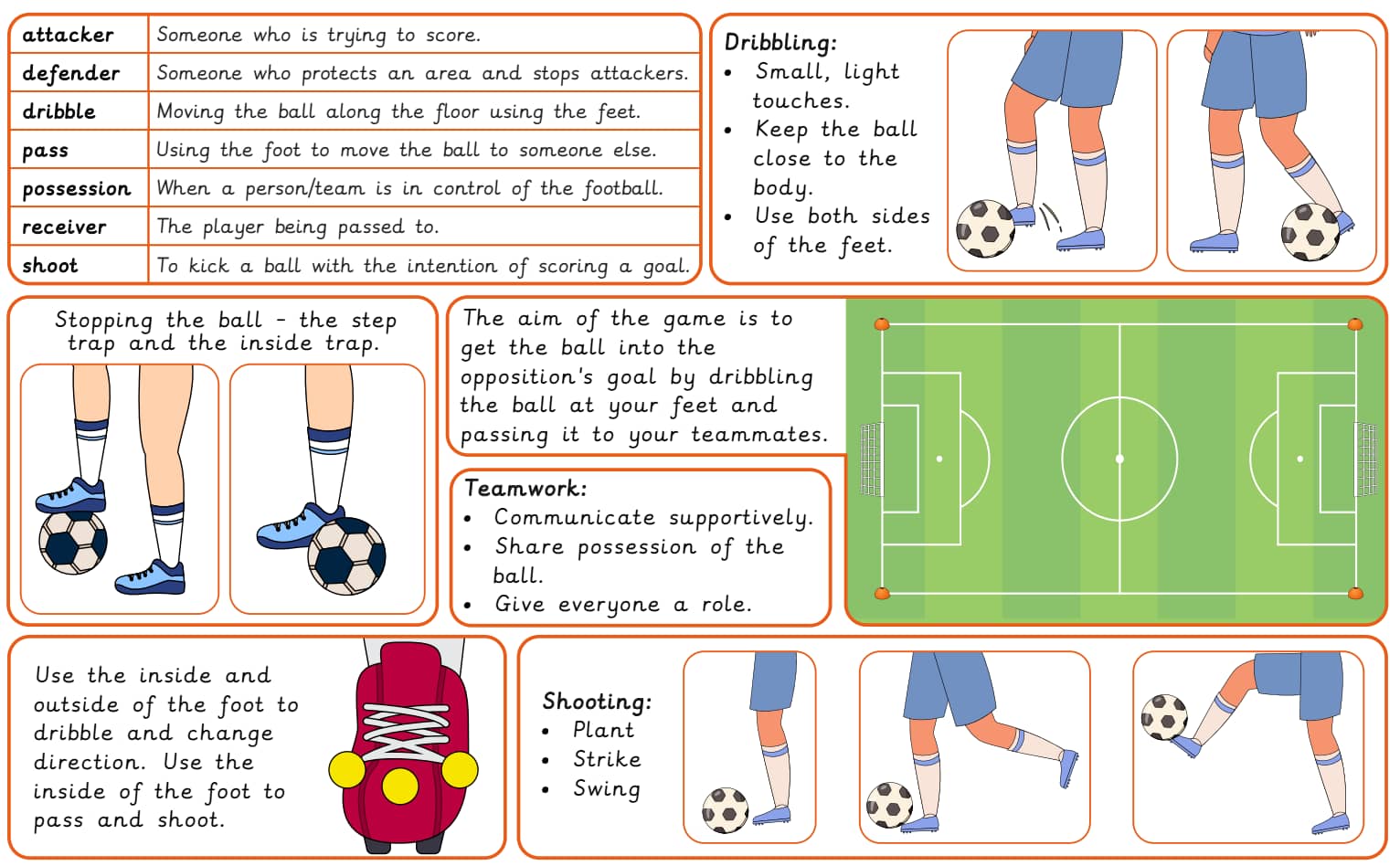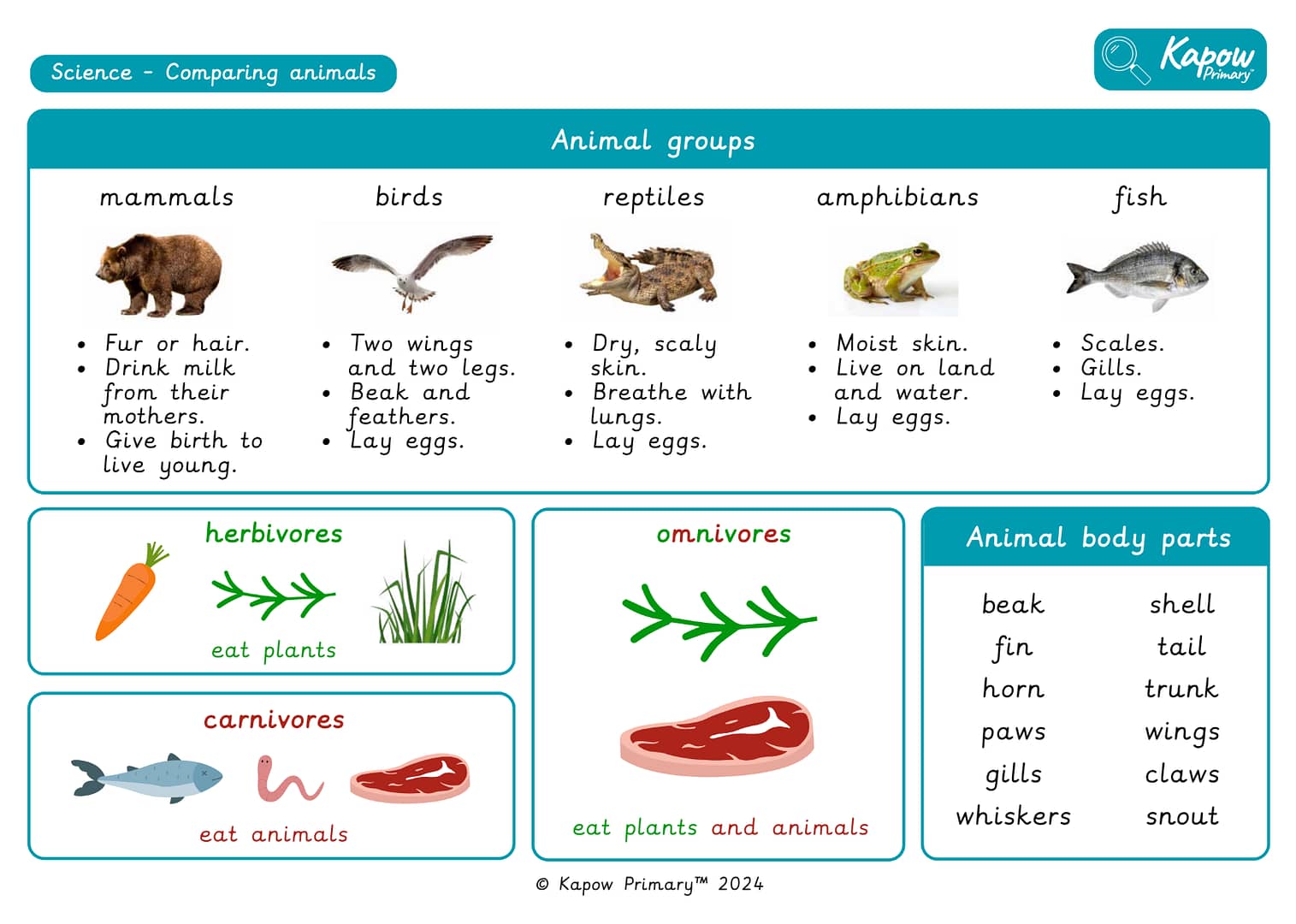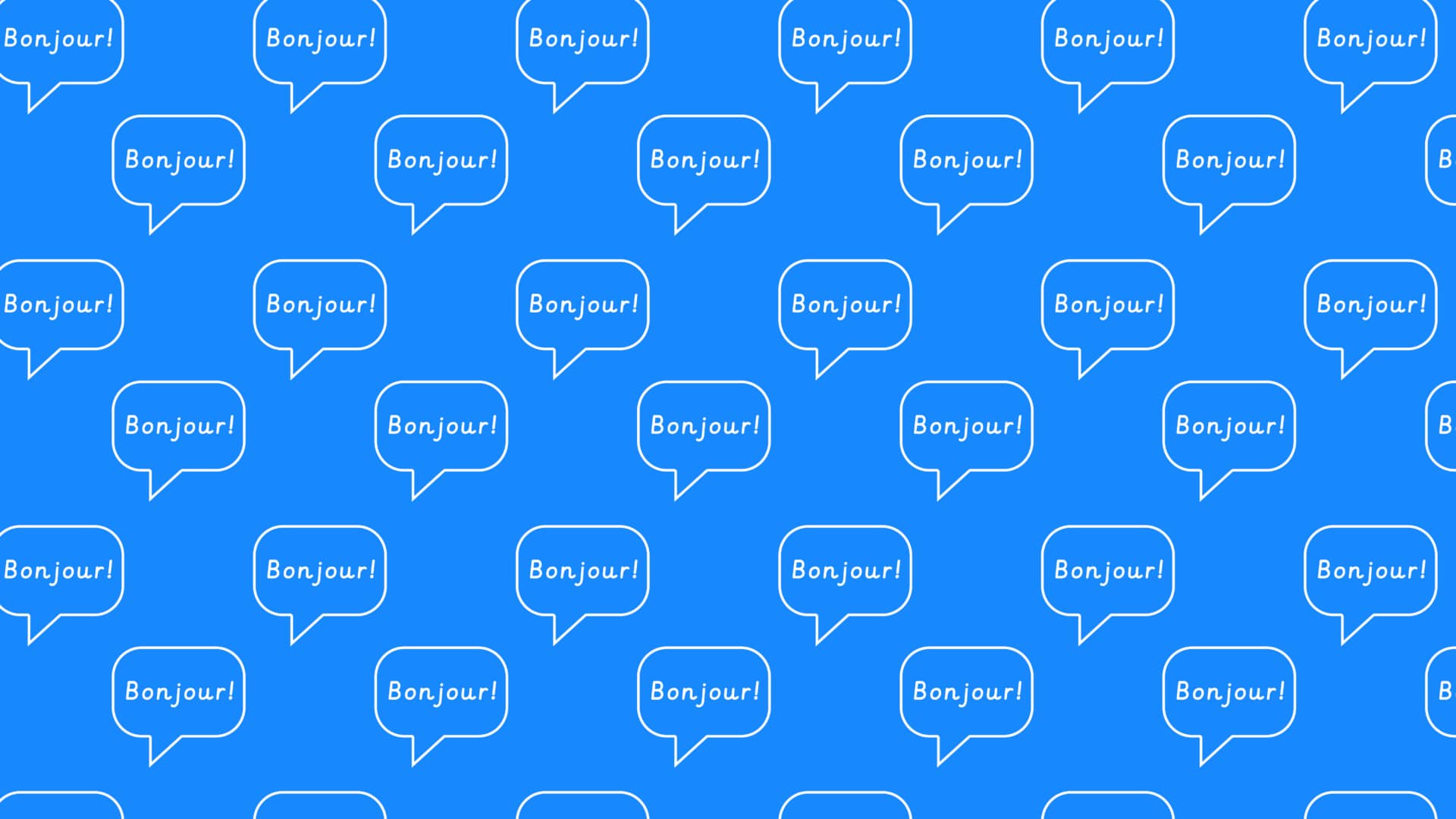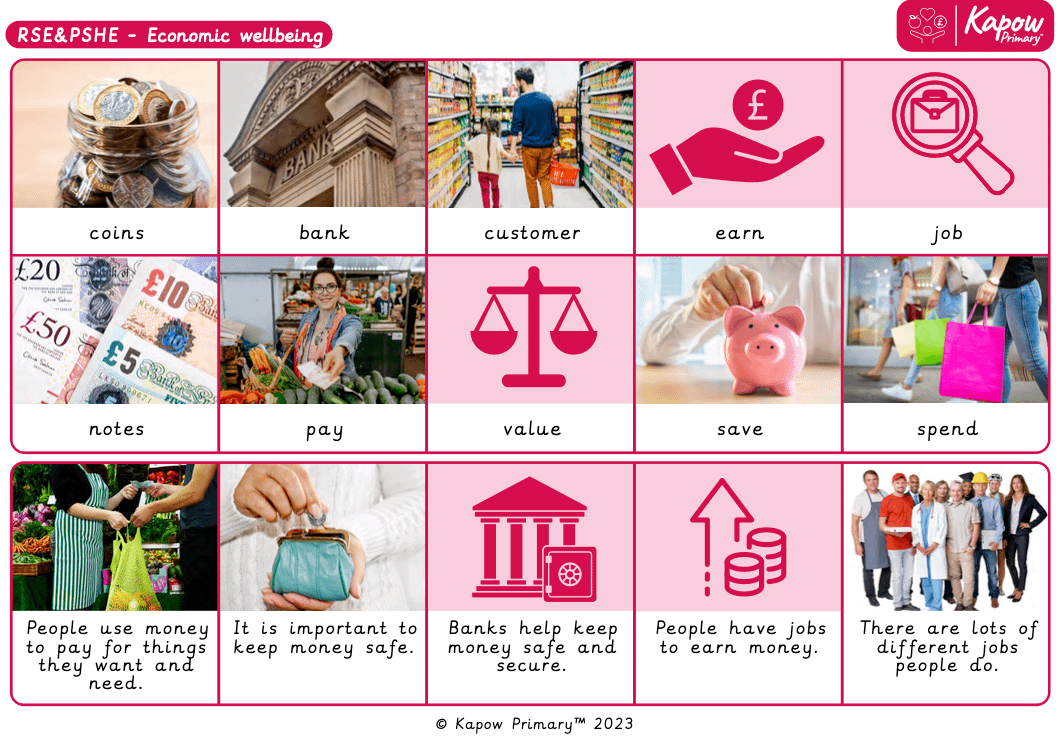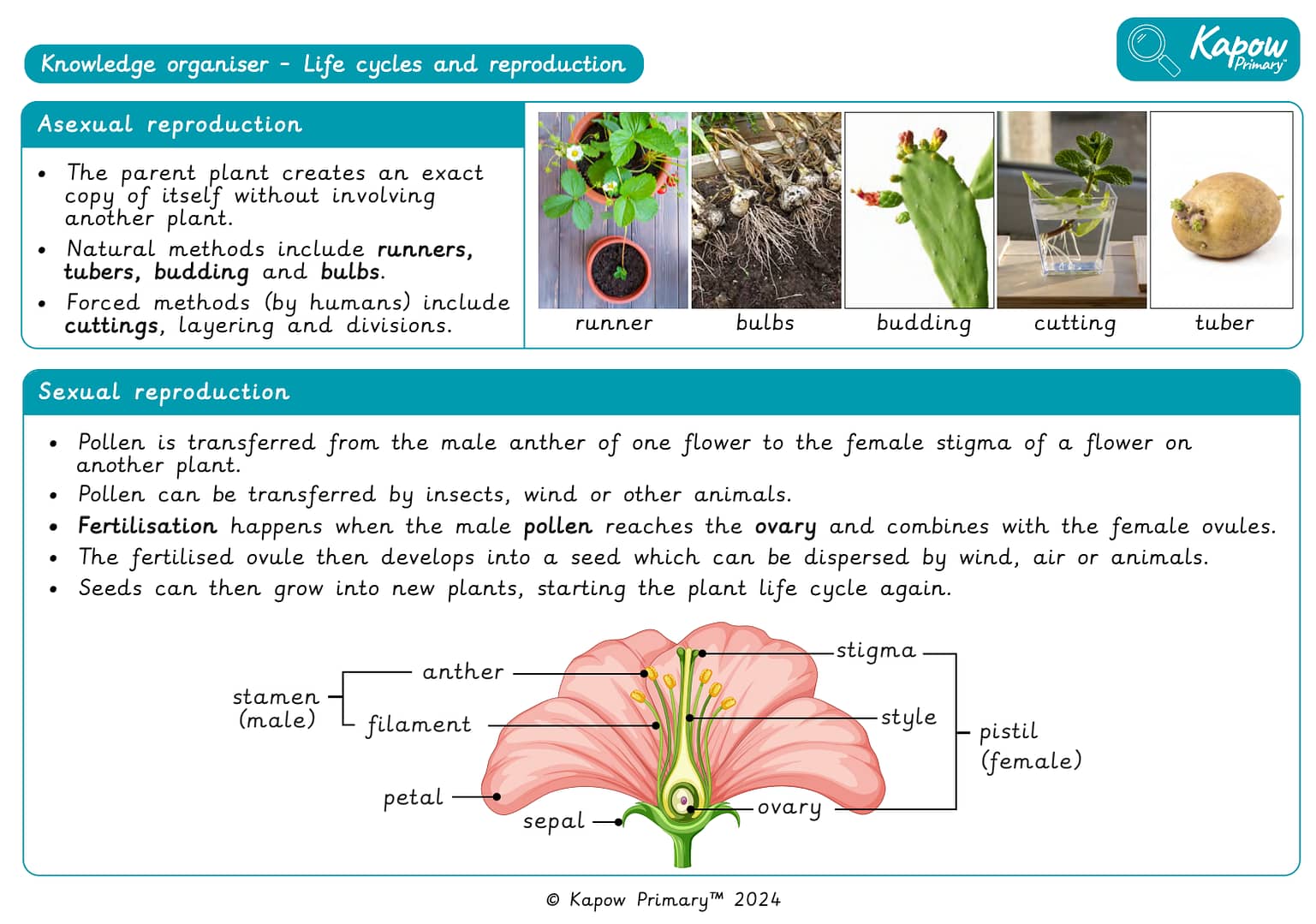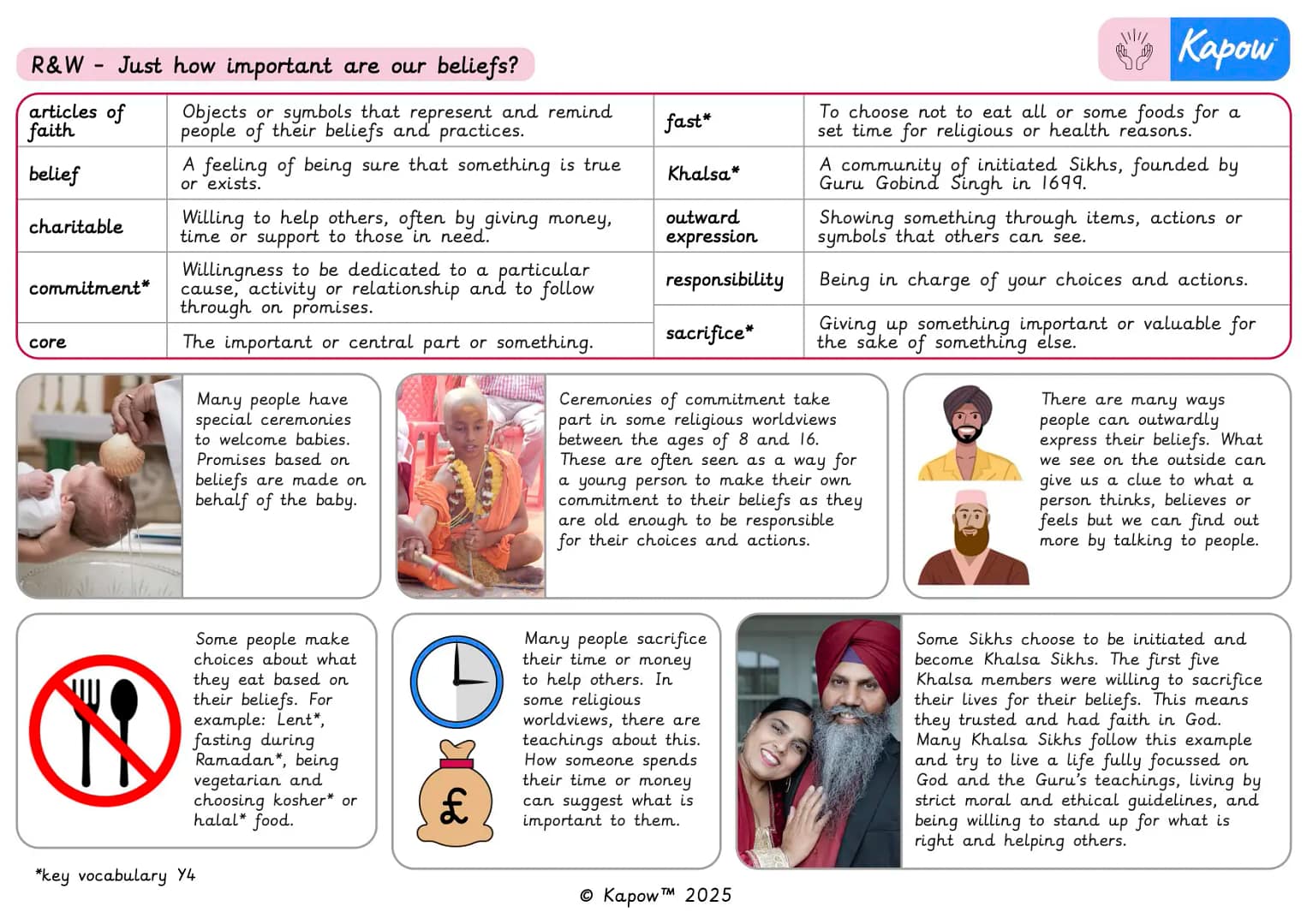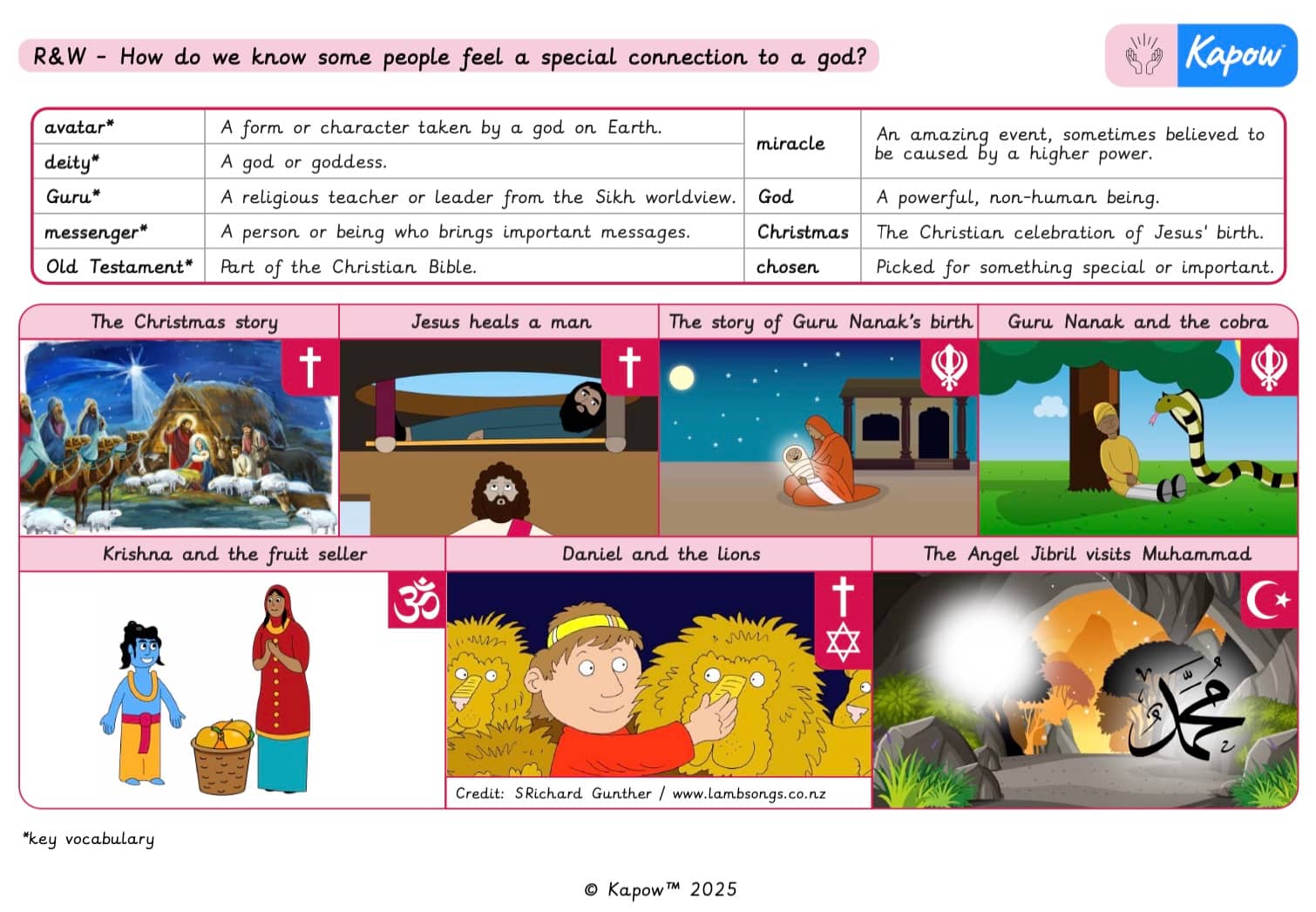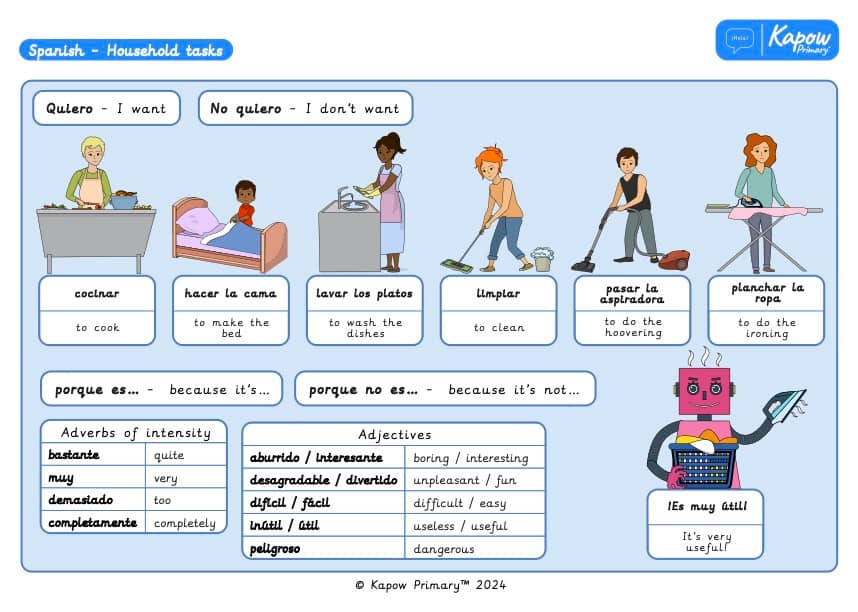Featured Document Type: Knowledge organiser
Knowledge organiser: PE – LKS2 Football
Knowledge organiser – Science Y1: Animals, including humans: Comparing animals
A Knowledge organiser that captures the essential knowledge and skills learnt throughout the mixed-age unit Science, Y1, Animals, including humans: Comparing animals.
This resource is designed to support the children as they explore and compare animals, including humans. It highlights key vocabulary, animal groups (mammals, birds, reptiles, amphibians and fish) and their defining features. It also covers animal diets, such as herbivores, carnivores and omnivores, and identifies key body parts like fins, wings and tails. It is perfect for consolidating essential knowledge and fostering an understanding of animal classification and diversity in the natural world.

